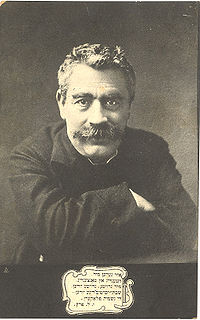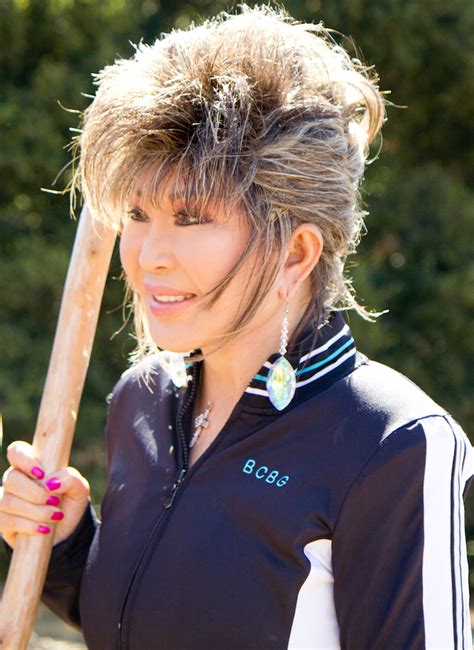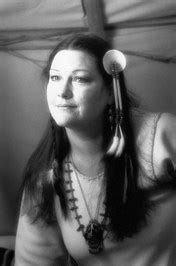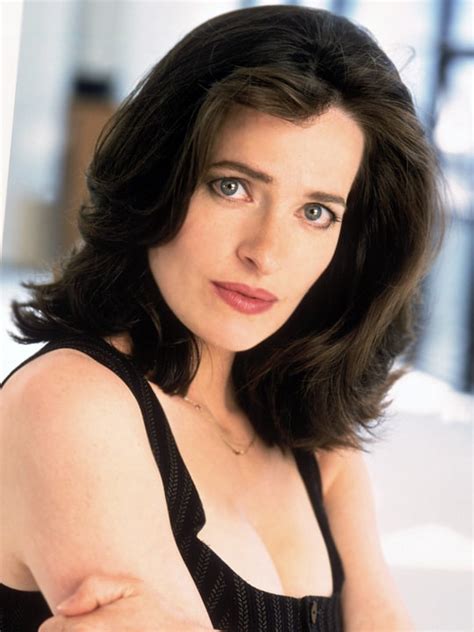A Quote by I. L. Peretz
[About Jews] By nature we are like all other human beings, yet our people is unlike others, because our life is different, our history is different, our teacher is the Exile.
Related Quotes
Most of our difficulties, our hopes, and our worries are empty fantasies. Nothing has ever existed except this moment. That's all there is. That's all we are. Yet most human beings spend 50 to 90 percent or more of their time in their imagination, living in fantasy. We think about what has happened to us, what might have happened, how we feel about it, how we should be different, how others should be different, how it's all a shame, and on and on; it's all fantasy, all imagination. Memory is imagination. Every memory that we stick to devastates our life.
We human beings are social beings. We come into the world as the result of others’ actions. We survive here in dependence on others. Whether we like it or not, there is hardly a moment of our lives when we do not benefit from others’ activities. For this reason, it is hardly surprising that most of our happiness arises in the context of our relationships with others.
The Jews started it all-and by 'it' I mean so many of the things we care about, the underlying values that make all of us, Jew and Gentile, believer and aethiest, tick. Without the Jews, we would see the world through different eyes, hear with different ears, even feel with different feelings ... we would think with a different mind, interpret all our experience differently, draw different conclusions from the things that befall us. And we would set a different course for our lives.
There is a huge gap between us (Jews) and our enemies, not just in ability but in morality, culture, sanctity of life, and conscience. They are our neighbours here, but it seems as if at a distance of a few hundred meters away, there are people who do not belong to our continent, to our world, but actually belong to a different galaxy.
We need a sense of the oneness of the 7 billion human beings alive today. When I meet people, I don't think about being different from them, about being Tibetan, Buddhist or even the Dalai Lama. I only think about being a human being. We all share the potential for positive and negative emotions, yet one of our special qualities is our human mind, our intelligence. If we use it well we'll be successful and happy.
We must embrace our differences, even celebrate our diversity. We must glory in the fact that God created each of us as unique human beings. God created us different, but God did not create us for separation. God created us different that we might recognize our need for one another. We must reverence our uniqueness, reverence everything that makes us what we are: our language, our culture, our religious tradition.
It’s in our interest to take care of others. Self-centrednes s is opposed to basic human nature. In our own interest as human beings we need to pay attention to our inner values. Sometimes people think compassion is only of help to others, while we get no benefit. This is a mistake. When you concern yourself with others, you naturally develop a sense of self-confidence . To help others takes courage and inner strength.
Practice can be stated very simply. It is moving from a life of hurting myself and others to a life of not hurting myself and others. That seems so simple-except when we substitute for real practice some idea that we should be different or better than we are, or that our lives should be different from the way they are. When we substitute our ideas about what should be (such notions as "I should not be angry or confused or unwilling") for our life as it truly is, then we're off base and our practice is barren.
It is part of our human nature to want to be liked. It is part of our human nature to worry about what others think of us. It is an attribute of greatness and of American exceptionalism to not surrender to our nature, but to be guided by an inner calling to persevere and to prevail, no matter the personal cost.
As Latter-day Saints, we need not look like the world. We need not entertain like the world. Our personal habits should be different. Our recreation should be different. Our concern for family will be different. As we establish this distinctiveness firmly in our life's pattern, the blessings of heaven await to assist us.
Forgiveness and the release of the past open the creative flow of life, supporting all levels of mind, heart, body, emotion, and spirit. This energy flow determines the state of our health, our desire to create and procreate, our willingness to develop our gifts, and how we use or deny the life force that we are given as human beings. . . . by choosing to let go of the past, our fears, and our negative patterns or reactions to life, we are suddenly funded with a resurgence of life force, which propels us into a newfound way of being and a very different way of understanding the world.
Our strategy should be not only to confront empire, but to lay siege to it. To deprive it of oxygen. To shame it. To mock it. With our art, our music, our literature, our stubbornness, our joy, our brilliance, our sheer relentlessness — and our ability to tell our own stories. Stories that are different from the ones we’re being brainwashed to believe. The corporate revolution will collapse if we refuse to buy what they are selling — their ideas, their version of history, their wars, their weapons, their notion of inevitability.
Those are big challenges in our age, not just how we live as co-citizens in societies with people of different faiths and different cultures - I mean, that's a big challenge itself - but how we think about all that as Christians, or as Jews, or as Muslims, or as Hindus. How do we think about the religious other? There's a theological dimension as well as a civic dimension to our pluralism.
































